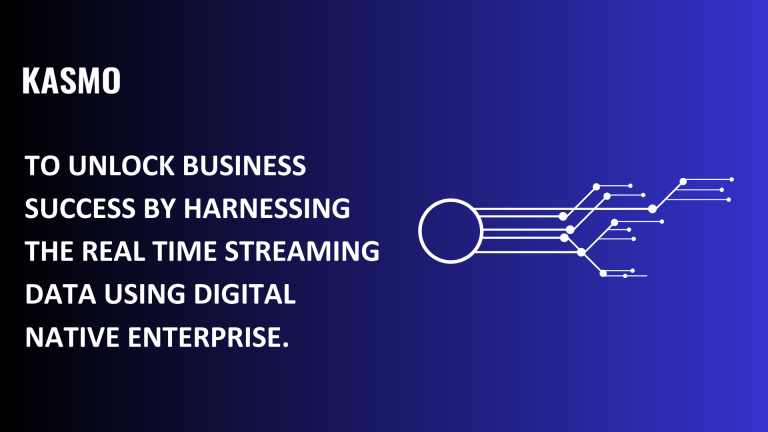In the digital landscape, Data, Analytics, and Artificial Intelligence (AI) play a pivotal role in driving crucial business decisions. For digitally savvy businesses, harnessing real-time streaming data is imperative to enhance customer experiences and gain a competitive edge. By looking beyond the present, these organizations can utilize this data to predict and strategically plan for the future.
For a digital native company to thrive and maximize their potential, they require a platform that can seamlessly scale alongside their business growth, accelerate go-to-market iterations, and enhance team efficiency to drive revenue and profitability. This necessitates a bold choice of a multi-cloud data platform that is user-friendly, offers the versatility to handle diverse data formats (structured, semi-structured, and unstructured) in a unified location, and facilitates the evolution of their data and analytics strategy without being locked into a single solution.
Let us explore the potential of Databricks Lakehouse Platform for Business Scaling and Data-Driven Growth.
Machine Learning (ML) and Artificial Intelligence (AI) Shape the Future
For many years, businesses have relied on conventional business processes and utilized Structured Query Language (SQL) and business intelligence (BI) tools to interact with and analyze specific subsets of their data.

In the realm of data and AI transformations, it is crucial for organizations to prioritize becoming an AI-first company rather than solely focusing on being a data-first company. Such transformations should genuinely revolutionize how organizations utilize their data.
The Databricks Lakehouse platform seamlessly integrates data warehouses and data lakes, creating a unified data platform that combines the strengths of both. By merging the reliability, robust governance, and high-performance capabilities of data warehouses with the openness, flexibility, and machine learning (ML) support of data lakes, the Databricks Lakehouse Platform offers the best of both worlds.
In addition, the Databricks Lakehouse platform empowers digital native organizations to maintain a competitive edge and excel in their data maturity journey.
Enabling Lakehouse Architecture with Open-Source Flexibility
Delta Lake, an open-source format, provides the foundation for building a lakehouse architecture on top of existing storage systems like AWS S3, Azure Datalake Storage (ADLS), and Google Cloud Storage (GCS). By leveraging the power of Delta tables, organizations can store data in the efficient Apache Parquet format while unlocking additional capabilities that enrich the data ecosystem.
Delta Lake extends the capabilities of Parquet by introducing essential functionalities that include ACID transactions, concurrent control, schema enforcement/evolution, unified batch and streaming data processing, and MERGE command capabilities. These additions empower organizations to maintain data integrity, handle concurrent operations seamlessly, enforce data schema consistency, and process both batch and streaming data efficiently. Additionally, Delta Lake facilitates time travel, allowing users to roll back and examine previous versions of data stored within the lakehouse.
Cloud Adoption
Traditional on-premise data warehouses and analytics architectures struggle to cope with the increasing volume and variety of data. Digital native enterprises demand real-time access to high-quality data to drive their operations effectively. The Databricks Lakehouse platform provides a solution that can be enabled on any of the three major cloud providers: AWS, Azure, and GCP. By modernizing their Enterprise Data Warehouse (EDW) workloads and moving them to the cloud, organizations can unlock the power of cloud computing and drive innovation.
Simplified Data Architecture
The Databricks Lakehouse platform offers a simplified data architecture that caters to various workloads, including data warehousing, data science, machine learning (ML), data engineering, and data streaming.
Furthermore, the Unity Catalog component of the Databricks Lakehouse platform provides consistent data governance across all data types and workloads. This centralized catalog ensures a unified and governed view of the organization’s data, enhancing data management and ensuring data quality and compliance.
One of the key advantages of the Databricks Lakehouse platform is the absence of lock-in at multiple levels. Organizations are not bound to any specific cloud vendor, data format, or compute engine.
Reference architecture for Cloud Native Business:

In conclusion, the Databricks Lakehouse Platform provides digital native companies with a powerful solution for scaling their business and achieving data-driven growth. By integrating data warehouses and data lakes, it combines reliability and performance with flexibility and ML support.
In order to initiate your journey towards embracing scalable AI and analytics, we encourage you to reach out to our team at Sales@kasmo.co. We are here to provide you with the necessary guidance and support to unlock the potential of advanced AI and analytics solutions, tailored to meet your specific business needs. Contact us today and let’s embark on this transformative journey together.

